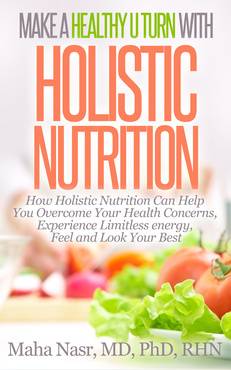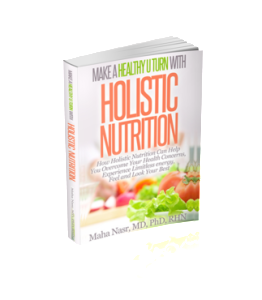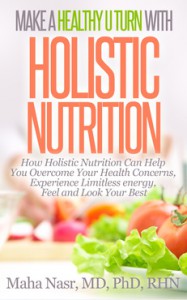Are you stressed most of the time? Do you always feel anxious or overwhelmed? Is stress compromising your health and happiness? Nowadays with the advanced technology and fast paced life, we are exposed to a considerable amount of stress compared to what our grandparents used to. Some may even consider stress as a part of normal life that they can do nothing about.
Chronic stress is a proven underlying cause of many disease conditions. It causes a complex biochemical hormonal process as well as an emotional reaction in the body that can overtime produce organ system imbalances and disturbing symptoms such as muscle tension, fatigue and poor sleep.
Some of the stressors we are exposed to are minor everyday ones such as traffic, meeting a deadline, getting to work on time, raising children, meeting someone new, etc. Other stressors might be related to relationship challenges, financial challenges or health challenges.
Types of stress include
- Physical stress such as exercise, hard labor, lack of sleep
- Nutritional stress such as vitamin and mineral deficiencies and food allergies
- Chemical stress caused by exposure to toxins, drugs, alcohol, caffeine, nicotine
- Emotional stress such as anger, fear, frustration, betrayal, sadness, depression, toxic relationships.
- Biological stress caused by chronic infections, allergens, chronic diseases such as gastrointestinal diseases, allergies, cardiovascular disease and cancer
What are the effects of chronic stress on our bodies?
- Chronic stress uses up specific nutrients to meet up increased biochemical needs particularly the B vitamins, vitamin C, magnesium, zinc, selenium, calcium and also vitamin A and E. If you’re not getting enough of these nutrients, you most probably will end up with deficiencies.
- Chronic stress slows down your digestion. When we are stressed energy is shifted away from our digestive system and the digestive enzymes production slows down. That’s why eating on the run or in a hurry, will usually result in poor digestion.
- Chronic stress stimulates your brain and heart and constricts your blood vessels so there is increased risk of stroke, heart disease and hypertension with chronic stress.
- Chronic stress exhausts your adrenal glands. When we are stressed the adrenals have to produce the stress hormone adrenalin and cortisol to help us adapt to stress. These hormones where originally produced as part of the fight or flight response when humans were exposed to danger but now we are in a constant fight or flight response that does not end in running or fighting so we are not ending the cycle and this can result in extreme fatigue and burn out due to adrenal exhaustion.
- Chronic stress depresses your immune system. Our brain is directly linked to our immune system so when we are stressed the brain sends signals to suppress the immune system. Moreover the stress hormone cortisol has an anti-inflammatory and immune suppressant effect in the body. This state of low immunity can predispose to serious illnesses such as autoimmune diseases and cancer.
- Chronic stress releases free radicals in your body which cause oxidative stress on your cells and may predispose to inflammation and tissue damage.
Stress related symptoms include
- Indigestion
- Fatigue
- Headaches
- Insomnia
- Muscle tension
- Neck and back pains
- Irritability
- Weight changes
- Premenstrual symptoms in females
- Depression
As an Oakville-based nutritionist, I find that chronic stress is one of the major causes of ill health and unhappiness for most of my clients. So working to reduce stress might be a way to optimize your health and increase your happiness. It can also be a way to save your life from this silent killer that lies at the root cause of many major illnesses such as heart disease, autoimmune diseases and cancer.
Stress-reducing activities
There are many ways to help you minimize stress in your life and the dangers that come with it. Here are some of them:
- Have more fun in your life
- Feel free to expressing your feelings
- Get enough good-quality sleep
- Eating a nutrient-rich diet
- Consider Supplementing your diet
- Practice mind body exercises such as deep breathing, yoga or meditation
- Move your body every day
Stress and the mind body connection
It’s important to realize that stress is not the situations or incidents themselves. Real stress comes from the way we react to these events or experiences. So in order to learn to adapt to stress, we need to learn to shift our mindset so that we respond rather than react to stressful situations.
We need to work on your mind body connection and teach our bodies to deal with stress in a non-reactive way. Adapting our attitudes and finding suitable outlets for our stress is an important long-term strategy to protect yourself.
It’s always good to ask yourself this question whenever you feel stressed about any situation or incident in your life: Is this going to be important one year from now? If the answer is no, then this is something that you don’t need to be stressed about.
In my holistic nutrition practice in Oakville, stress reduction is one of the main pillars for health and wellness. I find that among all techniques I teach my clients, breathing is one of the easiest and most available tools to control stress. Mastering your breathing can be a very powerful technique that can help you relax when you need to.
I also recommend specific supplements that can help the body adapt to stress or correct possible nutrient deficiencies that might exist and further stress the body.
We offer tele-health coaching via Zoom, so we can help you if you are out of area. If you need help with your health and nutrition, sign up for a 15 Min Discovery Call where we discuss your current goals and concerns and how we can help you.
If you find this information useful, please feel free to share with your family or friends.




